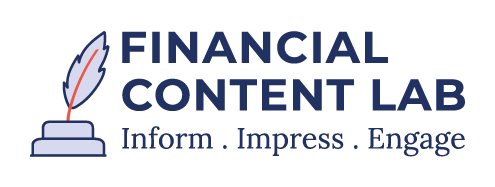Similarly, businesses often claim to be ‘client-centric’ or offer solutions created ‘with the client in mind’. But again, shouldn’t this be the minimum clients expect? Who wants to buy a solution that was created without clients in mind, or without the details being considered?
THE WAFFLE CAMP
The use of such meaningless terms falls into a camp that I like to call waffle. The intention is usually good, yet the words lack meaning for your reader (who will no doubt hear the same thing from your competitors).
Waffle isn’t the only plague on modern content. Meet its sibling, jargon. The latter has crept in over the past several decades and become a norm in financial services. Here, intentions have typically been less honourable. According to a 2017 survey by American Express, people use jargon to try to sound smarter – or to dodge questions.
Waffle and jargon have become so normalised in financial services that we often don’t realise we’re using them. And in my experience, people use waffle and jargon as they think compelling, detailed content must equal long and complicated content.
Yet in reality, combining these two tends to lead to not just confusion, but annoyance for a reader. Another survey of B2B marketing leaders in 2018 found a large majority believe that marketing clichés diminish a company’s credibility.
As a content lover, I long to see the end of jargon and waffle. This was an important founding principle for Financial Content Lab. And it’s something I plan to uphold even when I’m in my 80s writing letters to my grandchildren.
FIVE TIPS TO ERADICATE JARGON AND WAFFLE
I hope these help you get to the root of what you want to say. Doing so will mean more to your audience.
- Don’t be afraid to use simple language. Think ‘start’ not ‘embark’, ‘aim’ not ‘endeavour’, ‘agree’ not ‘concur’.
- Always think – what does this word mean? For example, financial organisations love the word ‘leverage’. But unless used for its definition (a specific investment strategy), this word is usually an excuse to be non-specific. Do you mean to increase something tangible? Improve the quality of a service? Try to be precise.
- Keep sentences short. It depends to a degree on the medium, but in continuous writing, strive for a maximum of 10 words. And definitely not more than 20.
- Avoid stating the obvious; try to be specific about what you are offering. Classic examples include:
- Being client-centric (so are all your competitors, what’s different here?)
- Providing an ‘end-to-end’ solution. Another given quality. If you don’t say this, should your audience then assume the solution is incomplete?
- Describing something as innovative. Is it really? If someone else is doing it, it’s not innovative
- Saying you will be ‘proactive’. Most deliberate actions we take are proactive. If you are trying to say you will take initiative, then explain when and how.
- Avoid using comparative adjectives unless you clearly explain the A versus B. For example: ‘We offer greater value for money.’ Greater than what? Then who?
Of course, it can be hard to see what’s in front of you when you’re in the thick things. A quality content partner can help you sift through the waffle and tell your story concisely, without jargon. Do get in touch to learn how Financial Content Lab can do this for you.





